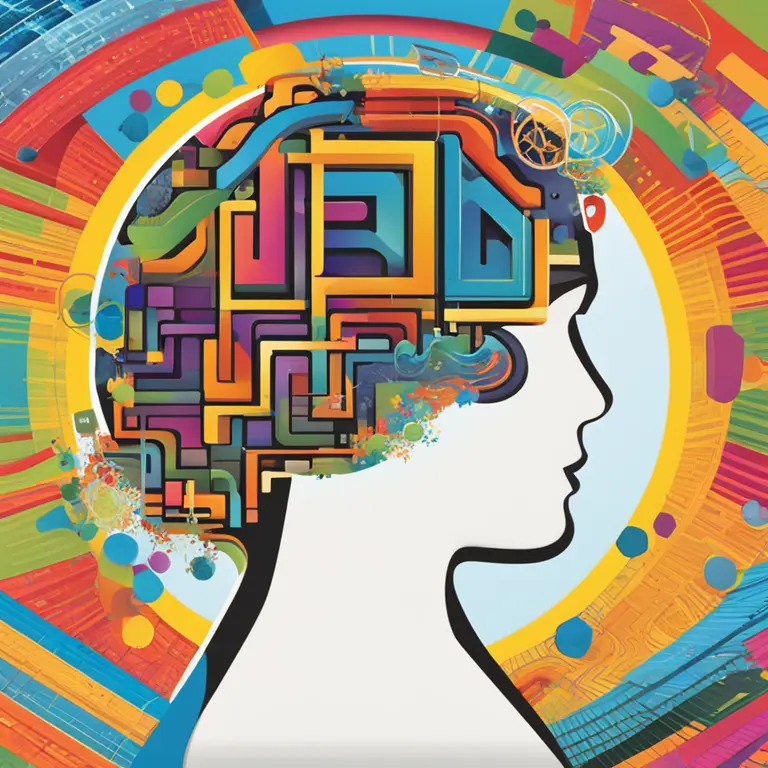
Mindfulness & Meditation: A Coping Strategy for ADHD
Discover the benefits of mindfulness and meditation for managing ADHD, offering techniques to improve focus, reduce stress, and enhance daily living.
article by Hina Kurosawa
The Challenge of ADHD in the Modern World
Living with Attention Deficit Hyperactivity Disorder (ADHD) in today’s fast-paced environment can often exacerbate the struggles of maintaining focus and composure. The condition, characterized by persistent patterns of inattention, hyperactivity, and impulsivity, affects individuals of all ages. Traditional treatments usually involve a combination of counseling and medication, but there's an emerging trend towards the inclusion of meditation and mindfulness practices as complementary therapies. Here, we delve into the potential of these age-old traditions for providing a fresh perspective on ADHD management.

Understanding Mindfulness and Meditation
Mindfulness is the psychological process of bringing one's attention to the present moment, while meditation is the practice of concentrated focus, which can facilitate mindfulness. Both practices aim to develop a greater awareness of thought patterns, helping individuals recognize and steer away from the relentless whir of mental activity that is often magnified by ADHD. Cultivating a practice of mindfulness and meditation can, over time, lead to improved mental clarity and reduced stress levels, which is hugely beneficial for ADHD sufferers.

The Science Behind the Practice
Recent studies point to the neuroplasticity of the brain—that is, its capacity to form new neural connections in response to learning and experience. Mindfulness and meditation have been shown to positively affect the brain regions involved in attention, self-regulation, and awareness. With consistent practice, these neurocognitive exercises have been noted to strengthen attentional circuits, which may help mitigate some ADHD symptoms, making daily tasks for sufferers more manageable.

Integrating Mindfulness into Daily Routines
For individuals with ADHD, integrating mindfulness into daily routines can be a game-changer. This can be as simple as performing regular breathing exercises or dedicating a few minutes each day to purposeful stillness. Additionally, mindful walking or eating, where focus is placed on the physical sensations and experiences of these activities, can serve as effective mindfulness exercises that are particularly appealing for those who might find sitting still challenging.

Meditation Techniques for ADHD
In the context of ADHD, certain meditation techniques may offer more significant benefits. Guided meditations, which involve following verbal instructions from a teacher or app, can help anchor distractible minds. Similarly, mantra meditation, which involves the silent repetition of a word or phrase, can act as a focal point to return to when the mind wanders. The key is consistency and patience, as the benefits of meditation are often cumulative.
Setting Realistic Expectations
It’s important for individuals with ADHD to understand that mindfulness and meditation are not cures, but rather techniques that can help manage symptoms. The goal is not to empty the mind of thoughts but to observe them without judgment. Removing the pressure of achieving a 'perfect' meditative state allows for a more realistic and beneficial practice. With realistic expectations and a non-judgmental approach, those with ADHD may find a greater sense of calm and focus.
Embracing a Supportive Community
Lastly, building a community or joining a group focused on mindfulness and meditation can provide social reinforcement, guidance, and accountability. Support from others can be particularly valuable for individuals with ADHD, who may benefit from shared experiences and strategies. Whether it's a local class, an online forum, or a dedicated app, finding and engaging with others on a similar journey can be an empowering aspect of practicing mindfulness and meditation.
Published: 1/18/2024
Modified: 1/18/2024
More predictions
Come back here soon to learn more about yourself and your future


Easing Pain With Mindfulness Meditation
Discover how meditation can be a powerful tool for pain management, offering natural relief and mind-body harmony.


Exploring Meditation in Psychological Practice
Delve into the psychological perspective on meditation, its benefits, and applications in modern mental health practices.


The Significance of Modern Meditation
Discover the crucial role meditation plays in fostering well-being, focus, and balance in today's fast-paced world.